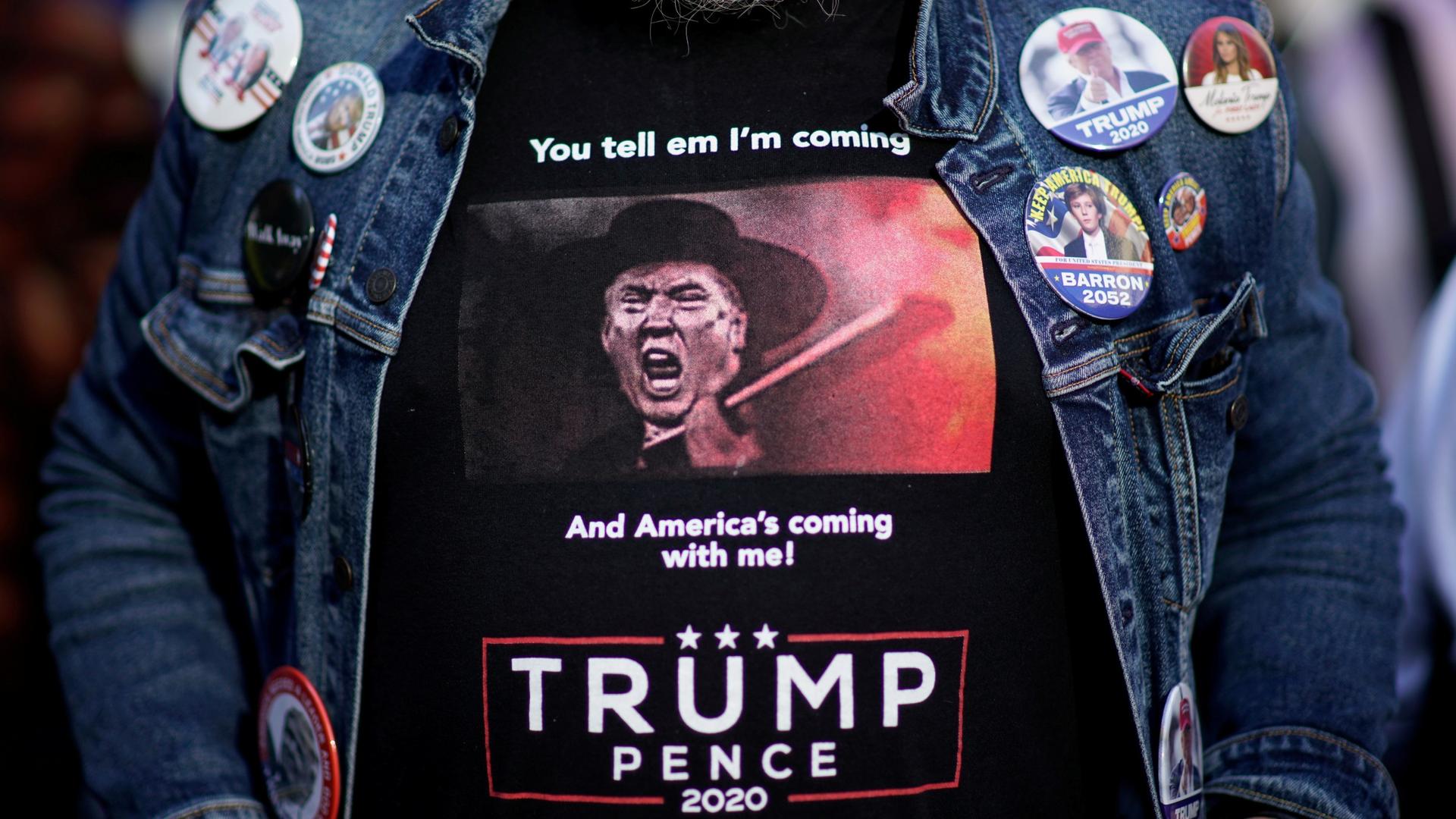Masha Gessen on the 2020 election: Democracy involves ‘constant reinvention’
Last night, when it was looking increasingly likely that Joe Biden would muster enough electoral votes to win the presidency, President Donald Trump spoke at the White House.
“If you count the legal votes, I easily win,” Trump claimed, citing baseless accusations of election fraud. “If you count the illegal votes, they can try to steal the election from us.”
His fabrications continued for 17 minutes — the president providing no evidence to support his allegations that the American presidency was being taken unjustly from him.
Across the landscape, members of the media, pundits and some Republicans quickly described the speech as a low point for American democracy.
CNN’s Jake Tapper reacted by saying, “What a sad night for the United States of America to hear their president say that, to falsely accuse people of trying to steal the election, to try to attack democracy that way with this feast of falsehoods.”
The major news networks simply pulled the plug on the president and took him off the air.
For more on the US and creeping authoritarianism, The World’s host Marco Werman spoke with Masha Gessen. In their book “Surviving Autocracy,” Gessen chronicles the rise of Trump and the American political trajectory of the past few years. They are also a staff writer with The New Yorker.
Marco Werman: First of all, I just want to get reaction from you to Trump’s speech last night. What did you make of it?
Masha Gessen: Perhaps I’m a little different from people who saw it as something really extraordinary. And frankly, I wasn’t surprised. Trump has been telling us that this is exactly what he was going to do, and this is exactly how he perceived the electoral process. And we knew that this is what he was going to do. He was going to cast aspersions on the electoral process. He was going to basically say that whatever votes were cast for him were good votes, beautiful votes, legal votes, and everything else was illegitimate.
Related: Biden ahead in Georgia, Pennsylvania; Trump attacks process
Right, so you were obviously not surprised last night when he actually came out and said this. So, let’s jump to a different scenario where, in the near future, Joe Biden takes office. What lasting effects will four years of Trump have on the presidency or on the US government as a whole? What was already baked in — that is now even more evident — and what can be undone?
I actually think we need a reinvention, both institutional and spiritual, of democracy. We need to really have a countrywide conversation about what we mean by “democracy.” Democracy is not elections. Democracy is not a set of institutions. Those are all instruments of democracy. But how do we create a government of the governed? How do we create a government of the people, by the people and for the people? These are fundamental questions that we haven’t asked in a long time. And I think that part of the reason that it has been so easy for Donald Trump to pervert institutions is because we haven’t been having this conversation. These are really huge and difficult projects that cannot be accomplished in Washington through Washington means. They’re kind of national conversation types of projects. And that’s what we really need to do in order to avoid a Donald Trump, or a successor to Trump, coming back in to take advantage of the structural changes that he has made.
Masha, in what countries have you seen democracy get reinvented while the bus — as it were — is still moving? Where has that worked? Is there a model to follow?
You know, at the moment, it’s looking pretty bleak. But I think the democratic experiments are often not terribly long lasting because they require reinvention all the time. For example, Poland has had an amazing 30-year run, where a totalitarian regime gave way to something that was really beautiful and representative and thriving for a long, long time. Americans tend to think of democracy as something you build and then inhabit. And I think that the tendency to think that way has actually been more pronounced over the last generation as we refer back to the Founding Fathers as though they invented everything once and for all. But democracy is not that. Democracy is a process of constant reinvention.
This interview has been lightly edited and condensed for clarity.
Our coverage reaches millions each week, but only a small fraction of listeners contribute to sustain our program. We still need 224 more people to donate $100 or $10/monthly to unlock our $67,000 match. Will you help us get there today?
